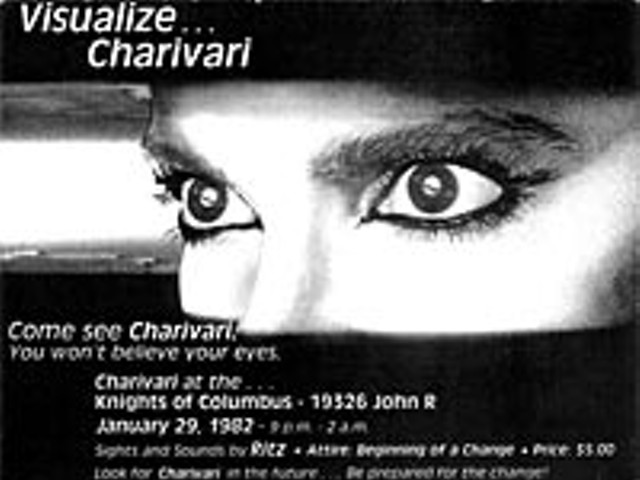As hard as we might try, there are not enough hours in a day to make sense of the fractionalized definitions of punk. For all the academic postulating and endless list of catty subgenres, “punk” has etymologically moved from being about music to becoming about culture, and consequently lost any shred of concrete meaning. Spending their whole careers in a musical underground that traces its roots back to punk’s simpler definitions, Ted Leo and Travis Morrison of the Dismemberment Plan are the kind of people who speed the word’s evolution. They had this discussion via e-mail. —Nate Cavalieri
Travis Morrison: If I may megalomaniacally project, I think one of the ways that our roads have been parallel is that we have chosen to try some bold stylistic moves in the context of underground punk rock. There have been moments when I’ve wondered if there was a place for craft and stylistic ambition in what can be a very cloistered corner of popular music. I wonder if I wouldn’t be better off trying my luck in the anonymous semimeritocracy of aboveground music, where no one gives a shit what fest I played or what label I’m on. Do you have moments like that?
Ted Leo: I do often have those moments of, if not outright despair, then at least extreme frustration with what is at times a very stifling atmosphere in the “underground.” As an artist making things for public consumption, you have to be ready to deal with criticism, but you also expect the latitude to grow, and too often that’s not the way it goes. People hated my first solo record, but I rarely got the impression that anyone actually gave it a thorough listen, and I don’t think it’s because it was full of abrasive noise — I mean, when did that ever turn punk and indie people off? It wasn’t what people expected or wanted to hear from me. I feel the allure of that “anonymous” zone that you speak of. I think the people I touch are touched in part because they know what I’m going through sticking it out in the “underground” or “punk world” or whatever. That sort of compliment is the most valuable part of the public side of what I do.
Morrison: Lately, I’ve been obsessed with the Band, because I think they’re a band to be emulated. Not in terms of sound, but in terms of their musical ethos and knowledge of the past, and how they were able to ignore time and place completely and follow their own singular vision. I’m totally uninterested in sounding like them; I just want to be like them. Can you think of an artist that you want to be like but not sound like?
Leo: I’d have to say Peter Brötzmann, the avant-garde saxophonist. In the ’60s, he stuck a big middle finger up at European jazz and started putting out the most insane, brain-scraping, free-noise shite imaginable. He did it because he loved it and there is so much soul in it that, as nasty as it gets, it still feels on some levels like the warmest sonic massage. He still tours small clubs and kicks serious ass at 52 or however old he is. His most recent touring group is called the Die Like a Dog Trio, and you really have to see the fury to believe it. The coolest.
Morrison: You aren’t really in a band anymore. It’s Ted and friends. The lineup seems pretty stable right now, but you’re the name up front, no doubt. I’m still in the band I started when I was 19, with friends from my youth. That obviously has its perils, but its benefits as well, and I was wondering if you could discuss the pros and cons of having left your band-gang, Chisel, to do it yourself. Is this really that different, and what’s harder and what’s easier about doing it this way?
Leo: Toward the end of Chisel, we weren’t really communicating that well and we certainly weren’t really writing together. You’d think it might’ve been an easy transition, but it took some time and thought to get my head around to the idea of playing alone as more than just something to do on the side. There is a different dynamic that took me a few years of playing solo to really figure out. There are obvious pros — you get to really hone your vision and see your thoughts through to the end. You really expose your strengths and weaknesses to yourself (and others, I guess), and the self-learning thing kicks into high gear. Every one of these things has a down side though. Your singular vision might run a constant risk of turning too monolithic; you may expose your weaknesses too much, ones that should never have been tested at all. Trying to be a solo performer in the punk world is practically suicide — you can’t subvert that comfortable boy-band paradigm, you know? People laugh; people go outside to smoke; and people don’t want to buy your records. But then again, as I also said above, those that do get into you have gone that extra mile in understanding, and that one or two people let you know that you’ve made the right choice, and the right choices with your life.
Nate Cavalieri is Metro Times’ listings editor. E-mail him at [email protected]




